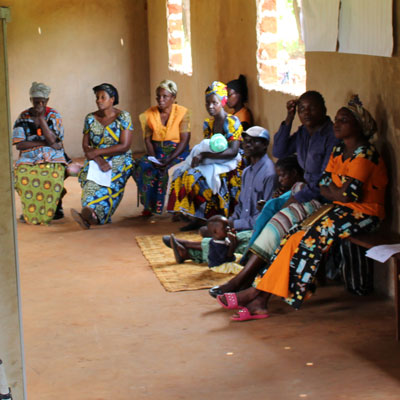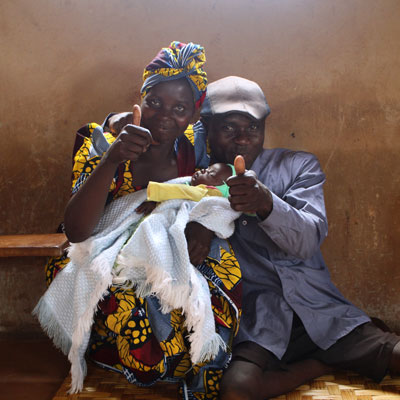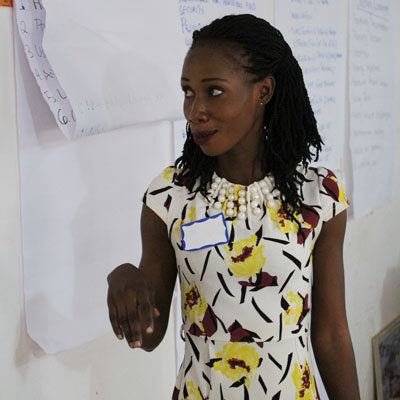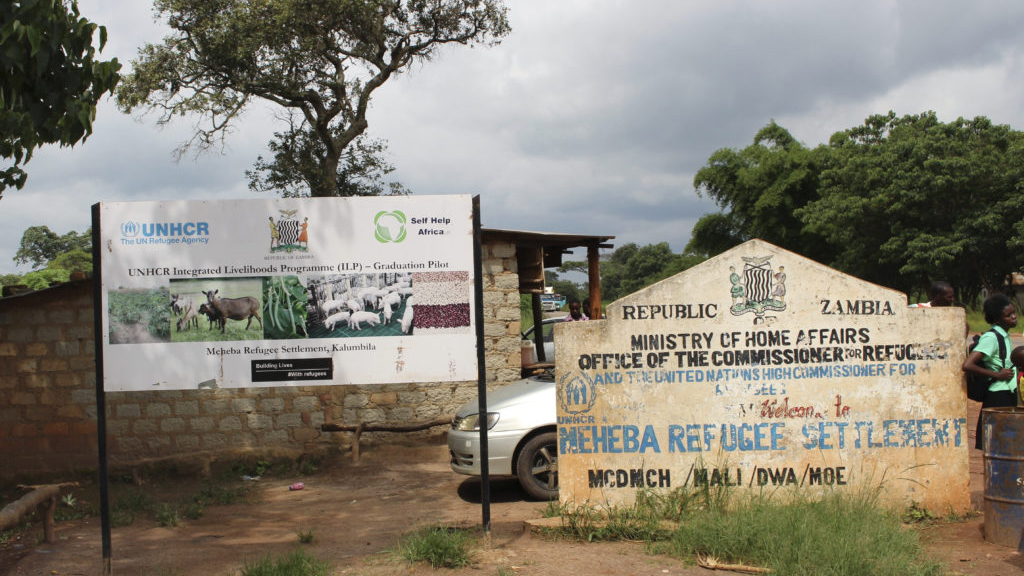Meheba
When asked about their experience with Graduation, Micheline* and Sylvestre smile and signal thumbs up. Micheline and Sylvestre are attending a refresher on how, when, and why to save. The enterprise facilitator from Trickle Up’s implementing partner Self-Help Africa, as well as a representative from the National Savings Bank of Zambia, are providing the training in Swahili, which is the local language among the refugees here at the Meheba settlement in northwest Zambia.
Since 2016, Trickle Up has worked with UNHCR and Self-Help Africa to build the organizations’ capacities to deliver Graduation to the refugees of Meheba, the second largest refugee settlement in Zambia hosting over 47,000 displaced persons from the Democratic Republic of Congo, Somalia, Burundi, Rwanda, and Angola. This pilot program runs through April 2019, but the larger impact on the Meheba community is already evident.
As Graduation is scaled across Meheba and other settlements in Zambia, benefits to the wider refugee community will continue to increase, building refugee self-reliance among participants and non-participants alike.

Direct and Indirect Participants
Sylvestre and Micheline are from the Democratic Republic of Congo but have been displaced since 1999 and have lived in Meheba’s Block A since 2010. Prior to the program, their sole source of income was Sylvestre’s work repairing shoes. However, the couple has five children and this income did not meet their basic needs. Since becoming a graduation participant, Sylvestre has learned how to rear pigs and broiler chickens, better run his cobbling business, and grow maize and soya beans.
Although technically not a Graduation participant, Micheline also benefits from the program. She is a member of Sylvestre’s savings group and now manages the household income. She also increasingly handles the farming and livestock rearing due to Sylvestre’s limited mobility.
In Block A, there are ten direct Graduation participants—like Sylvestre—that received seed capital and coaching, and nine indirect participants—like Micheline—whose main entry point to the program has been the savings groups. The Graduation pilot has created a trickle effect: while there are only 63 direct participants engaged in Graduation fully, there are an additional 39 indirect ones participating in the savings groups and benefiting from the knock-off effects.

Continuous Learning
Receiving a work permit in Zambia as a refugee is a right restricted only to those with specialized degrees, such as doctors and lawyers. When Aude finished high school in the Meheba’s block D, she had few options. As a refugee from Burundi, Aude has spent her life in displacement since she was eight months old. Aude knows Swahili, Kirundi, English, as well as Nyanja, a local Zambian language.
This pilot has provided jobs to six coaches in the settlement, including Aude who coaches ten Graduation participants from her community. Striving to be the best coach she can, Aude is always respectful – especially since many of her participants are her mother’s age – and aims to be an honest thought partner who asks the right questions and provides meaningful feedback. To that extent, Aude, like the other coaches in the pilot, attends all the participants’ trainings and workshops. So far, she has learned about a variety of topics, such as business entrepreneurship, healthy eating habits, savings, and refugee rights, in addition to topics covered in her own coaching training sessions. In order to most effectively build a business plan with the men and women she coaches and utilize all the information she’s amassed, Aude diligently takes notes during each session: she tracks participants’ incomes, savings, eating habits, and more.
Aude is also the first and only female coach in the camp. When asked how she feels about being the only woman coach, she shrugs and snickers, “Oh I’m used to it.”

Financial Access for All
Collectively, across the six savings groups in the camp, participants have saved K40,885 (US $3,435). Concerned about such a large amount of money sitting in savings boxes idly, the implementing partner collaborated with the National Savings Bank (NATSAVE) at their local branch right outside of the settlement, to create a new service tailored for refugees. The account type, called Karibu, which means “welcome” in Swahili, requires smaller minimum balances and transaction fees than a typical account. Participants only require a sponsorship letter from the settlement’s UNHCR Refugee Officer to get started. Refugees do not need the government issued alien card, which is tough to acquire. Moreover, NATSAVE offers a group account option in addition to the personal option to all refugees in the settlement, not only those participating in Graduation or the savings groups, effectively providing financial access to the 22,084 refugees in Meheba.
*All names changed to protect refugees’ confidentiality.


